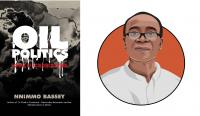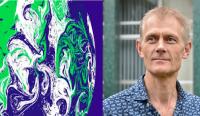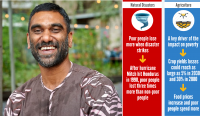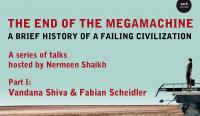David Goeßmann interviews Amalia Vargas from Minga Indigenas, a group of indigenous tribes of the Americas that represent the rights of indigenous people at the COP26 in Glasgow. Vargas criticizes that governments still don't listen to indigenous people who demand that nature has to be respected. If states go on destroying the environment like they have done until now they will have nothing to live on.
Amalia Vargas is an environmentalist form Argentinia and with Minga Indigenas, a group of indigenous tribes of the Americas
David Goeßmann: Can you briefly introduce yourself.
Amalia Vargas: I am Amalia Vargas and I belong to the Quechua.
David Goeßmann: Where exactly are you from?
Amalia Vargas: From the north of Argentina, the Andes.
David Goeßmann: Why are you here in Glasgow at the Climate Summit?
Amalia Vargas: I'm here because I want to help represent the more than 40 indigenous peoples of Argentina together with the Minga at the Climate Summit. We are happy to have a place to meet and exchange with each other here. But we are frustrated because the politicians are not listening to us.
David Goeßmann: Why don't they listen to you?
Amalia Vargas: Politicians only think about how to make money and increase wealth. Indigenous groups are a danger to them because they make it harder to just make profits. But the politicians will have to realize in the end that they will lose their own wealth, which is in nature. They need nature.
David Goeßmann: How is your region affected by the climate crisis.
Amalia Vargas: In the area where I live, there are large lithium deposits. Lithium is present in very many technical devices such as cameras, laptops, cell phones and so on. It's the gold of the 21st century. That's why when they search and extract the raw materials, they pollute our nature, our water. They kill the animals and they take away our territory.
David Goeßmann: How do you experience the global warming and its consequences. There are already heat waves, droughts, floods. The glaciers are melting.
Amalia Vargas: We live in the Andes, more or less 3,800 meters above sea level. Other communities live even higher, over 5,000 meters. Our glaciers are melting. That's why there are always floods, whole places are flooded, that also destroys our tree population. There will come a time when the land will dry up because we will no longer have ice on the mountains from which we get our water. Moreover, the water is already contaminated now, so it is no longer protected and sacred. We and the animals can no longer drink it. I want to emphasize that this destruction is caused by people. It is their fault. We should be clear about this. With the water, we are also losing our trees, our forests. We are losing medicinal plants that we use for our medicine. Birds are also disappearing, bees are dying, and the ecosystem is being destroyed. So at the same time, the male and female energy in nature that makes it thrive disappears. So the effects are severely damaging us and shrinking biodiversity. Our environment is increasingly broken and polluted.
David Goeßmann: What in particular are the impacts of climate change on women?
Amalia Vargas: Women are getting cancer and being sick more often. Climate change, the dwindling of the ozone layer, pollution: all of these have a negative impact on our health. We have lead in our blood. That's because chemicals are being dumped into the rivers by mining companies. That makes us sick.





